With the US release of Blumhouse’s THE INVISIBLE MAN this week, we’re going to take a look at films with characters that are hard to see. For this is…

“You nazis. I pity the devil when you boys start arriving in bunches.”
One of the brightest facets of the masterpiece that is 1933’s THE INVISIBLE MAN is Claude Rains’ unabashed chaotic crime slapstick routine: in the original Universal Pictures outing, he’s a punk rock, willy-nilly boy upsetting the apple carts, the status quo, and everyone’s respective pints. It’s one of my favorites of the classic monster pictures because it’s genuinely fun, it’s not afraid to be goofy, and it’s pretty damn brash when you compare it to, say, the beautiful but sleepy THE MUMMY from 1932.
It’s an intense energy to keep up among sequels, though, especially when it’s nearly a decade after the original’s release and you no longer have the deft horror/comedy touch of James Whale. 1942’s INVISIBLE AGENT has all that to contend with along with being the middle child of the Invisible Fella series. Following the cute but slight THE INVISIBLE WOMAN in 1940, this entry is also the only one that skips having the definite article “The” in front of its title, so you know something shifted in the wind.
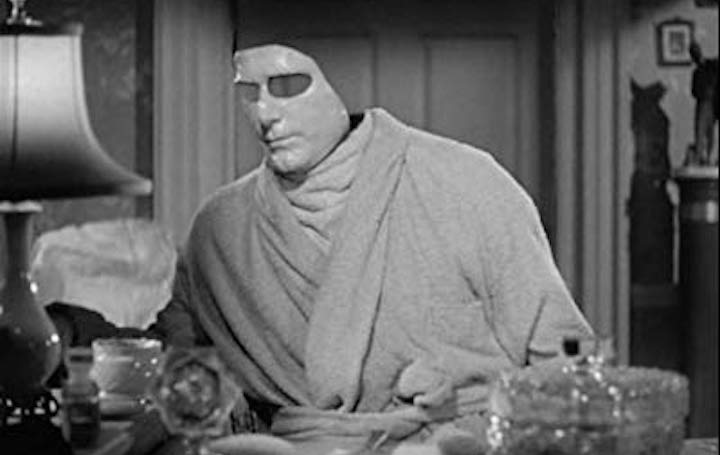
Indeed, the series moves away from horror (both madcap and a bit more macabre) to World War II, which makes sense considering the time period but is still quite the leap considering the “mad scientist stranger attacking a small village” roots of the original film. That said, out of all the monsters Universal could have recruited to the war effort, an Invisible Frank is the most likely of the crew.
INVISIBLE AGENT centers around the grandson (nephew? While “grandson” is said outright, some names get mixed up in the script, so it’s a bit unclear in a movie so concerned with transparency!) of the original Mr. Cellophane, Frank Raymond, née Frank Griffin (Jon Hall, THE INVISIBLE MAN’S REVENGE). That slight name change wasn’t as helpful as he’d like as the movie opens with him confronted by Axis agents threatening to remove his hands if he doesn’t give up the famous formula that Frank later describes as “a chemical in my veins that takes the color out of my whole body.”
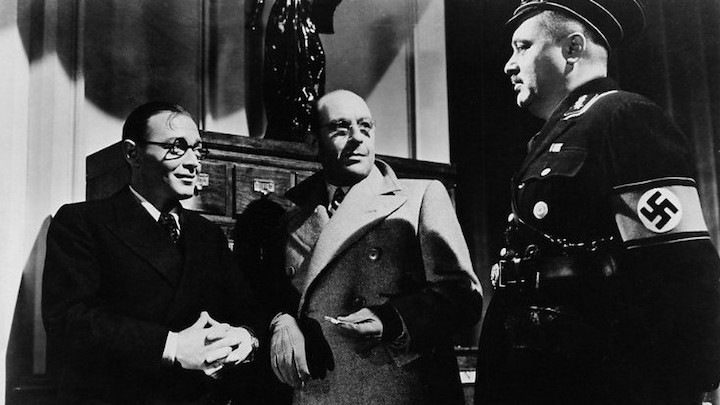
Since it’s 1942 in Hollywood, Hungary’s own Peter Lorre is playing a Japanese character named Baron Ikito. Its slim defense is that they tone down the look Lorre’s Mr. Moto character was saddled with (a bit), just giving him the shoe polish black hair and the requisite oversized round glasses. His character is played with respect within villain parameters, and no offensive accent is attempted. Small favors! All that noted, as usual, Lorre is a highlight in his scant scenes, playing a restrained but mighty sadistic streak with the control of a master. While the other nefarious enemies issue threats, Ikito jumps straight to “Oh, why don’t we make him tell us?” after fondling various machines that could deliver a lot of bad news to a person’s body.
Thankfully, Frank escapes with both his life and the serum. He lets the US government know about that attempt, but when it’s suggested that the home team boys on the frontlines could make use of the formula themselves, Frank intones “There will never be an emergency critical enough to justify its use. Never.” Smash cut to a newspaper headline with the Pearl Harbor attack splashed across it, and we know that he changed his mind before we’re even in the next scene where he volunteers the use of the formula to the military as long as he’s the only one to use it. Now this kind of pacing is how you keep a picture to 80 minutes!
Frank’s emphatic that he can do the reconnaissance better than a trained agent could deal with his serum, but is that really a foregone conclusion? He said he knows the potency better than anyone, but under his supervision, couldn’t he easily control it for an experienced officer? Is this the NASA/driller ARMAGEDDON paradox all over again?
Moving on to Germany, Ilona Massey (FRANKENSTEIN MEETS THE WOLF MAN) as Maria Sorenson, an espionage agent aiding the allies, is a highlight; her quick-witted charm paired with strong feminist ideals is a refreshing surprise. As Gestapo Standartenführer Karl Heiser (the great character actor J. Edward Bromberg, SON OF DRACULA, another Universal horror with a Siodmak connection) lays it out, her job includes “spying, flying planes, shooting guns, intelligence work… no, that’s not work for a beautiful girl!” Well, it is, and her resolve is further cemented with her fury at how the nazis “treat women like dogs.”
She’s no shrinking violet, and her glamorous strength and game sense of humor illustrate how often women were wasted in classic genre films. Having a true partner-in-crime actively helping move the plot along is always more interesting than dealing with the oft-used terrorized fiancee who constantly needs to “retire to her room” every time there’s a good scare on-screen. I bet Maria hasn’t seen her room in years.
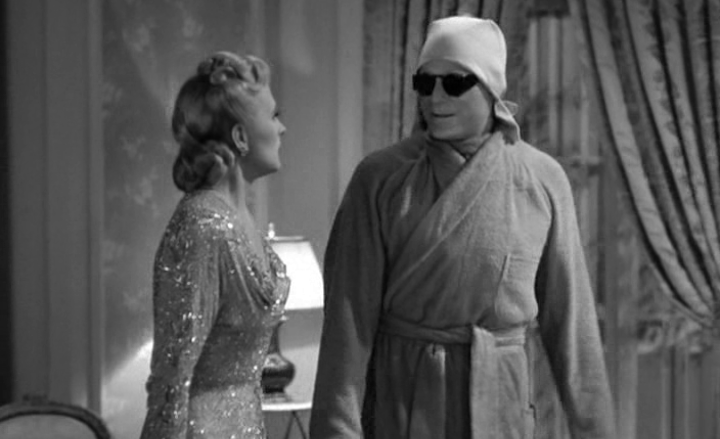
There’s nothing unexpected in the plot here, though it’s a full dance card for fans of the Invisible Man concept and anyone who appreciates an ensemble cast coming together like clockwork. It’s a tight, effective film with some gorgeous editing, and the spy thriller elements are handled with a snappy pace that keeps things exciting. There are some baffling moments when Frank gets invisible; namely, he occasionally acts like a buffoon who would goofily attack a nazi for hitting on a woman right when she’s getting the exact essential information they both need for their missions, ruining the entire scheme.
I feel like this is a bad take on the original’s portrayal of the original’s Jack Griffin specifically becoming more outlandish and irrational as the formula affects him. Here, it’s instead played as more of screwball lark anyone might pull when they could be invisible for a while rather than it being shown that the chemicals affecting his normally rational behavior play an even bigger role. It’s not enough to ruin anything, but it does stand out.
Sure, there was only one Preston Sturges, but screenwriter Curt Siodmak (back again from 1940’s THE INVISIBLE MAN RETURNS) became a go-to for Universal Pictures horror in the early 1940s as he seemed to have the knack of naturally balancing some quippy dialogue with suspenseful chills. I do prefer him in this mode over 1941’s THE WOLF MAN, as I don’t think overwrought, tortured dialogue was his particular strength.
Siodmak had left his home country of Germany due to the Third Reich’s growing power, landing in Hollywood in 1937, so he was better suited to the material than many writers who may have fumbled this strange marriage of terrible current events and pure science fiction fantasy.
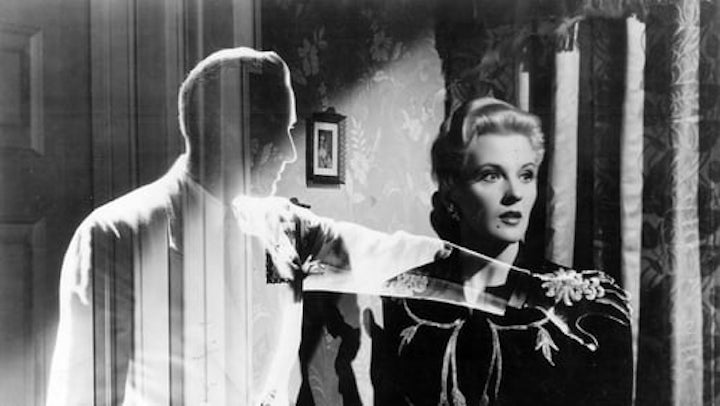
Hollywood took a lot of pride in getting both their pictures and stars to work on war propaganda movies as well as contributing talent to USO tours and special events to encourage war bond purchases during World War II, and sorry, Invisible Man, but you can’t dodge this draft even if we can’t see you! In the New York Time’s August 6, 1942, edition, however, the view was that the whole affair was crass:
“Out of the fanciful notion of placing an invisible spy in present-day Germany, the author has concocted an irresponsible tale that blithely mingles gauche attempts at comic satire with melodramatic sadism….. INVISIBLE AGENT takes the ruinous point of view that maniacal brutes may be simultaneously shown as laughable dolts. It is as incredible as a joke told in a nightmare.”
For my money, I believe that nazis should be ridiculed (though not underestimated) at every possible chance, and with the recent success of JOJO RABBIT, there’s clearly and tragically still a need and a market for that. Still, you can’t blame someone in the thick of a World War for being sensitive about how it’s portrayed on screen, horror movie sequel or not. To my 21st century eyes, however, INVISIBLE AGENT attempts and aces a delicate balance of showing the nazis as a true threat while still working in a nice bit of vaudeville-style humiliation at their expense.
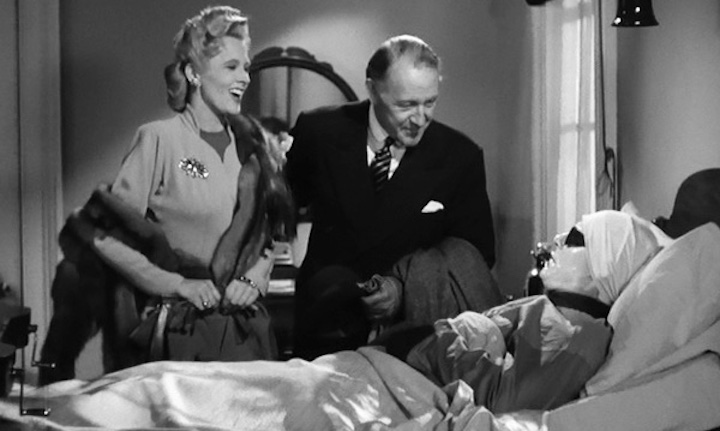
INVISIBLE AGENT is not exactly a flawlessly elegant dismantling of one of the greatest horrors in humanity’s history, but it wasn’t trying to be. What it brought was morale and a short, fun escape in a special effects-laden silver screen adventure, and it holds up as a fun classic nowadays. The toothless Johnny “Invisible Man” America version is a bit of a disappointment after seeing what killer Claude Rains got away with, but if you want some cozy hijinks and nazis getting what-for, this is the movie equivalent of a warm cup of tea.
Invisibility highlights: Frank soaping his leg up with his sudsy arm in a tub, a well-done cigarette lighting, surreptitiously stealing the champagne and chicken leg from a nazi, a cold cream aided reveal, floating paper burning, and an inkwell to a nazi’s face.
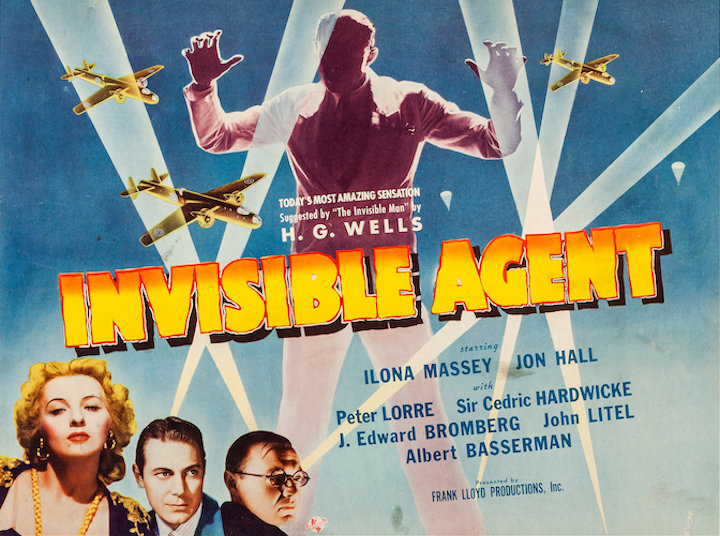
Tags: Curt Siodmak, Ilona Massey, Invisible Agent, J. Edward Bromberg, Jon Hall, Peter Lorre, The Invisible Man, The Invisible Man's Revenge, Universal Monsters, Universal Studios

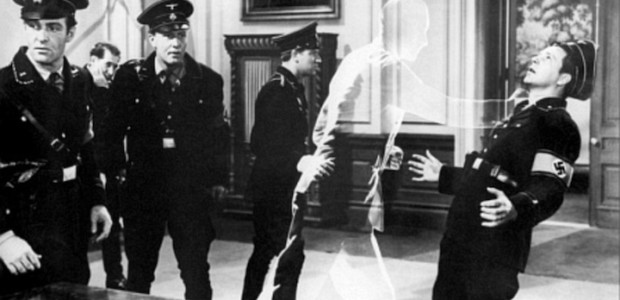
I just watched this movie on DVD a short while ago. Despite its faults, I suspect this was probably just the ticket for uplifting American audiences’ morale in the dark, early days of the war. I thought the performances of Sir Cedric Hardwicke, Peter Lorre, and J. Edward Bromberg were much better than this lighthearted film deserved. I also had trouble wrapping my head around the notion of Allied Command agreeing to let Raymond (a simple print shop owner) be the only person to use the invisibility drug with the fate of the free world at stake. Apparently, it never occurred to them that if something happened to Raymond, the drug could be lost forever. I laughed most over Raymond’s confrontation with and subsequent escape from Hardwicke and his mindless minions at Gestapo headquarters.
Still, it bothered me that Maria wasn’t selected to become the Invisible Agent. She was well placed, well trained, and highly motivated. She knew the right people, particularly those with access to crucial information, and demonstrated cool under fire. Most important of all, she was a lot SMARTER than Raymond. If she had been invisible, I’m sure the war in Europe would have ended much sooner!